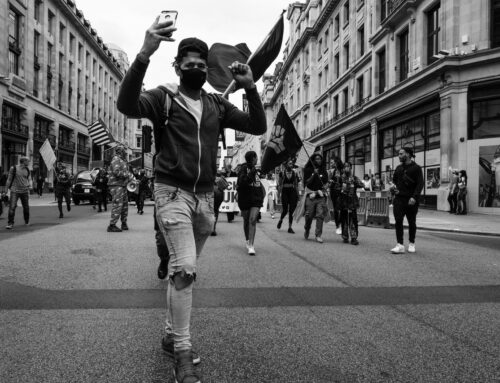William Murray, 1st Earl of Mansfield was a celebrated barrister, MP and Lord Chief Justice. He was considered one of the greatest jurists of the 18th Century. He was credited with the development of commercial law and copyright law at a time when Britain was growing in influence as a major trading power. He improved the courts systems and made law more accessible.
Yet far greater than all these achievements, was a decision he made as a Judge in ‘Somersett’s Case’ in 1772. His Judgement said that slavery had no basis in common law or statute in England.
James Somersett was a slave purchased by Charles Stewart in Boston, USA and brought to England. Somersett escaped. He was helped by abolitionists who had him baptised and became his god-parents. He was recaptured and placed on a ship bound for Jamaica to labour on plantations. Somersett’s god-parents issued a writ of ‘Habeus Corpus’ (a rule against imprisonment without just cause) and the ship’s captain brought Somersett before the Court of Lord Mansfield.
Somersett was represented by a team of abolitionist lawyers, backed by the great anti-slavery activist Granville Sharp.
Lord Mansfield had to rule on whether a person could be removed from England against their will. A central issue in the case was whether a slave was a ‘person’ or, as the Respondent in the case, Stewart argued, a ‘chattel’, or property and as such, could be removed at the will of the owner.
He stated, on the subject of slavery:
“It is so odious that nothing can be suffered to support it, but positive law. Whatever inconveniences therefore may flow from this decision, I cannot say this case is allowed or approved by the law of England and therefore the black must be discharged”
The reference to ‘positive law’ essentially means man-made, statute law. As no statute had been passed, Mansfield’s position was there was no justification in any laws which had developed over time as ‘common law’.
Whilst the case only addressed the issue of a forceful removal of slaves from England, it was nevertheless a major milestone, courageously overturning previous cases, for example the 1740 case of Pearne v Lisle by Lord Chancellor Hardwicke who stated that slaves were items of property “like stock on a farm”.
There has been wide debate amongst scholars as to the effect of the ruling and the precedents created, however the general agreement is that it certainly was the beginning of the end for slavery in England.
Slavery may never be wiped out – people trafficking, forced servitude, sweat shops…these can all be found here in the UK. With an estimated 25 to 30 million people in forced labour worldwide, slavery is not a thing of the past.
The Modern Slavery Act 2015 is an Act of the Parliament of the United Kingdom. It is designed to combat modern slavery in the UK and gives law enforcement the tools to fight modern slavery, ensure perpetrators can be severely punished for these appalling crimes and provide support and protection for victims.
Under the Act, there are severe punishments for modern slavery crimes (including life sentences). Courts may put restrictions on individuals to protect people from the harm caused by modern slavery offences. The Act also provides enhanced support for children, and requires businesses over a certain size to disclose each year what action they have taken to ensure there is no modern slavery in their business or supply chains.
Contact Us
Related Blogs
Registered Office : Queen’s Chambers, 5 John Dalton St, Manchester M2 6ET | Authorised and Regulated by the Solicitors’ Regulation Authority | 3D Solicitors Ltd : Company Number 10553315 SRA Number 636106

